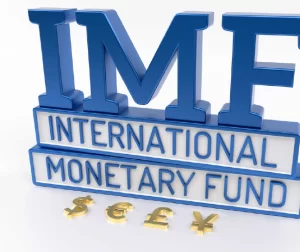Table of Contents
In a worrisome prediction by the International Monetary Fund (IMF), it is anticipated that Nigeria’s foreign reserves will experience a significant decrease, dropping to $24 billion in 2024.


This projection, outlined in the IMF’s recent country report for Nigeria, indicates potential challenges ahead for the largest economy in Africa.

Join our Telegram Channel for Updates
As of February 8, 2024, data from the Central Bank of Nigeria (CBN) indicates that the country’s foreign reserves stand at $33.12 billion, suggesting a substantial decline according to the IMF’s projections.
The IMF observed a surplus in the current account during the first half of 2023, yet there was a noticeable reduction in reserves. This decline is attributed to a drop in hydrocarbon exports, mainly due to widespread theft and insufficient investment in crucial upstream infrastructure. Additionally, profit repatriation from the oil sector has decreased, though it slightly offsets the negative impact on the current account.
In this scenario, Foreign Direct Investment (FDI) remains low, and there is an increase in portfolio outflows, including repayments of equity and Eurobonds as well as repatriations.
The IMF foresees a challenging period for Nigeria’s financial account throughout 2024–25, exacerbated by the absence of new Eurobond issuances, significant repayments of existing funds and Eurobonds amounting to $3.5 billion, and sustained portfolio outflows.
Despite anticipating a current account surplus, officially reported reserves are expected to decline to $24 billion in 2024. However, there is optimism for a recovery to $38 billion by 2028 as portfolio inflows are projected to resume.
The IMF report stated:
“Through 2024–25, the financial account is likely to deteriorate, with no projected issuance of Eurobonds, large Fund and Eurobond repayments of $3.5 billion, and portfolio outflows. Hence, despite a current account surplus, officially reported reserves are projected to decline to $24 billion in 2024 before increasing again to $38 billion in 2028 as portfolio inflows resume.”
The IMF mentioned that, according to the CBN, the 30-day average of gross international reserves (GIR) had decreased to $33 billion by October 2023, marking a nearly $4 billion decrease from the end of 2022. This level of reserves covers six months of import and meets 83% of the IMF’s Assessing Reserve Adequacy (ARA) metric.
Adhering to the IMF’s definition of GIR, which considers $8 billion in securities as pledged collateral and not readily accessible, the GIR adjusts to a lower figure of $25 billion at the end of October 2023.
The IMF also stressed the importance of the Nigerian authorities’ ability to manage the country’s external financial obligations effectively. The projections are based on the assumption that Nigeria will successfully roll over all maturing forwards and swaps, underscoring the significance of navigating the external financial landscape adeptly to secure and expand Nigeria’s foreign reserves in the years to come.
Challenges with foreign exchange illiquidity in Nigeria have impacted the country’s ability to clear its forex backlog, contributing to a decline in confidence among foreign investors.
The CBN has taken steps to address the backlog of foreign exchange forwards, with an outstanding balance of $2.2 billion yet to be cleared. Despite these challenges, recent reforms in the forex market and the oil sector are crucial for enhancing Nigeria’s appeal to foreign investors and strengthening the inflow of foreign capital, which is essential for stabilizing the Nigerian economy and ensuring its growth trajectory.









